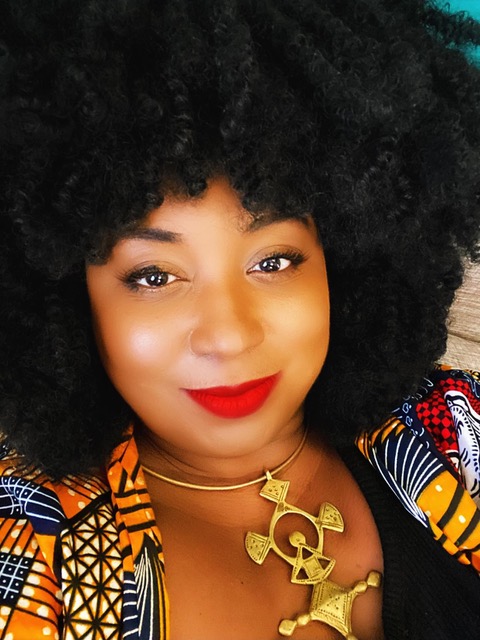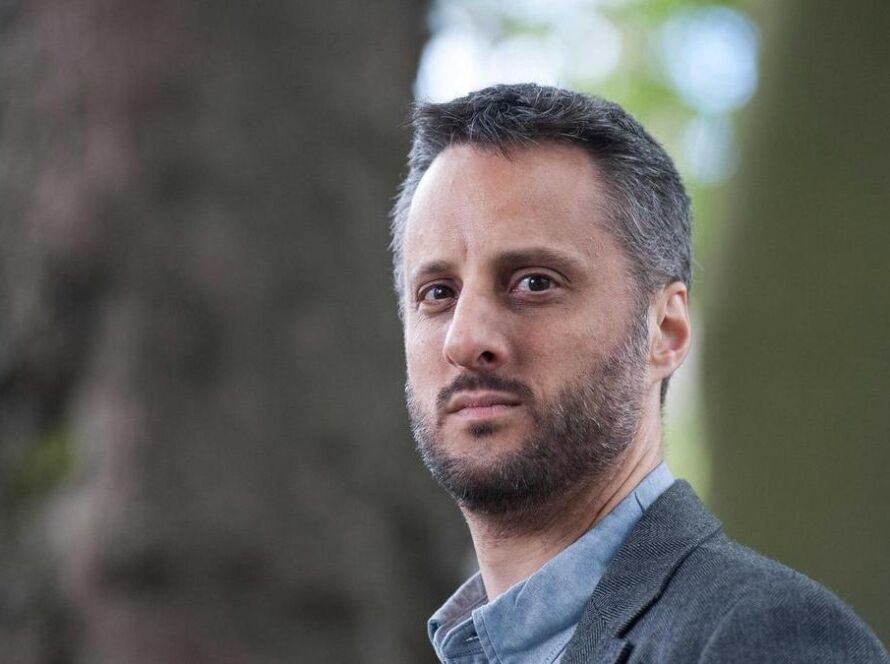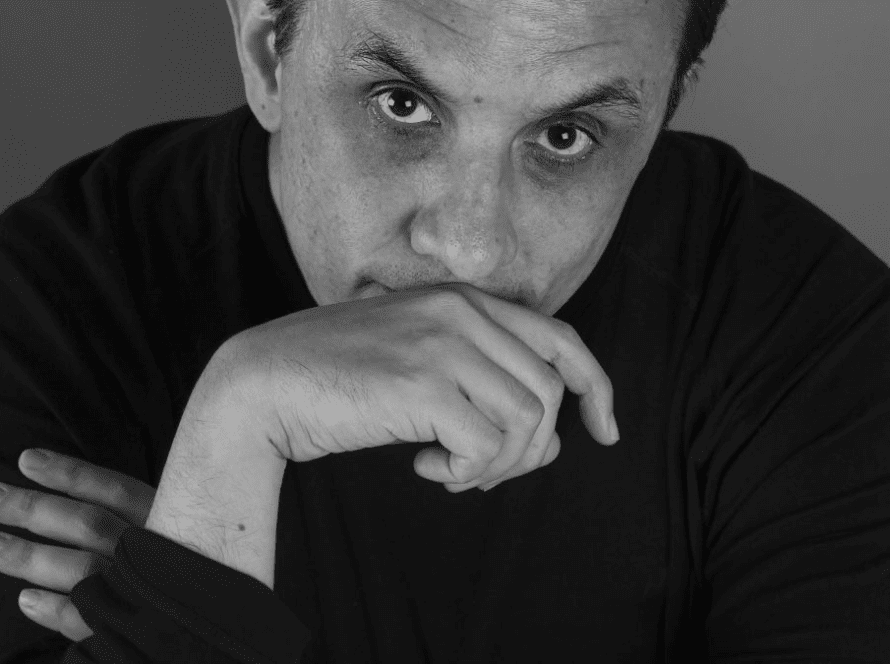The award-winning speculative fiction writer and editor Sheree Renée Thomas will lead her popular master class covering science fiction, fantasy, and other expectation-defying works of the imagination at UTV 2024. Enjoy this exclusive interview with Under the Volcano.

What books are you currently reading?
Nonfiction books about the ocean, octopi, and tide pools. Siren Queen and The Chosen and the Beautiful, are both incandescent, Old Hollywood reimagined, imaginative novels by Nghi Vo. I’ve long admired Anna May Wong and wondered what her career would have been like if she’d lived longer or in a different era, so Siren Queen is fantastic for fans of the screen legend and casual readers. Vo’s reimagining of The Great Gatsby is also very well done. Discovering that Merle Oberon, the shining star of Wuthering Heights, was South Asian and had to pass as white to begin her acting journey, sent me down a reading and viewing rabbit hole. I’m also reading a ton of short story collections, as I do. The short story is a masterful form, and I never tire of reading great story collections. Midnight Doorways by Usman T. Malik, Never Have I Ever (almost done with that) by Isabel Yap, Our Fruiting Bodies by Nisi Shawl (read her Belgian Congo steampunk novel, Everfair, and then look for the sequel next January). I read and edit other talented writers’ great stories (and poems) almost daily in my regular life as the editor of The Magazine of Fantasy & Science Fiction, which was founded in 1949, so reading for fun, for pure pleasure and enlightenment, is an intentional and necessary part of my self-care and enjoyment.
What books do you return to over time and why?
I love short novels, so I reread Wide Sargasso Sea by Jean Rhys each summer, pairing it with its original inspiration, Charlotte Brontë’s Jane Eyre, of course. The novel takes the hidden history of Mrs. Rochester from the attic and returns her to the complex Caribbean island of her youth. Exploring the sources of that mysterious character’s pain is such a cool literary project. I enjoy works that are in deep conversation with each other in unusual ways. For example, Maryse Condé’s Windward Heights reveals the mysteries (maybe not-so-mysterious origins) behind Heathcliff’s come-up, a disturbing background that’s only alluded to in Emily Brontë’s Wuthering Heights. In doing so, Condé gives us a masterful tale of an entire people. Love it. And I return to Toni Morrison’s Song of Solomon, because she’s brilliant, Arthur Flowers’s Another Good Loving Blues because it is my home, my heart, it is Memphis, and Alice Walker’s The Third Life of Grange Copeland because it is an underappreciated gem that gave me life as a young reader, an emerging writer discovering that the literary canon was wide and deep enough to include the lives of people who looked like me. And those lives did not have to be flawless.
Which three writers, dead or alive, would you like to have coffee or drinks with and why?
This is a tricky question because we writers are often weird folk! Writers as people can range from the boring and pedestrian, to the run-of-the-mill arseholes, to the sparkling and refreshing souls of light. There are some amazing writers I’d love to chat with, but I already know they’ll nibble on their bread and be painfully shy. Many writers are introverts, and others soak up all the spotlights they can get. There are ranges in the species. If I had to choose only three writers to drink with, I’d choose Zora Neale Hurston in a heartbeat, because I feel like she finished her life story mid-sentence. I’ve been dying to hear every word she wanted to share with us since Alice Walker brought her back into the public memory. Thank you, Alice! I used to listen to a cassette tape of Ruby Dee performing Zora’s work and it was magic. There is no other writer whose love for language and my people, has touched me more. I would treat her to drink after drink and listen to her until the sun rose again and again. The other two writers would be Oscar Wilde because I find him infinitely fascinating. Some time ago I would have said Stephen King, but he has been so generous with us, his readers, already. So candid, transparent, and giving. I feel that he owes us nothing else. But I’d have to say the third writer would be James Baldwin because you already know he was and is amazing. Oh, to have dined at his supper table, to be there with the young Henry Louis Gates, Jr. when he and Josephine Baker had that famous, long dinner.
Do you have a secondary passion or talent apart from writing that might surprise people to know about?
Visual art is something I enjoy—visiting museums, reading massive coffee table art books, watching interviews of artists about their craft, etc., and I am an occasional painter and dollmaker. Both of my parents were artists, though they both took on professions that were far from their creative roots. So, I grew up amongst some gifted people, great storytellers, visual artists, seamstresses, etc., and there are some very famous singers in the family as well, on both sides. When I was an undergrad, I had two important mentors. One was a well-respected Nigerian painter and the other was a beloved arts patron and independent bookseller. In my mind, two paths lay before me, one was art, the other writing, but I knew my heart was in the work of letters and words, as it had been since I was very small, so here I am.
What was your moment of greatest despair as a writer and how did you resolve it?
In the early 2000s, I lost everything I’d written for the past ten years when my computer died, and I also lost a considerable early library. It was traumatic. Like losing a loved one. I felt as if a whole part of me, my spirit, had suddenly disappeared. I was crushed and could barely look at a blank page. The loss would rise inside me, a hollow thing. Eventually, I made it through, because, of course, we must. The poet Jacqueline Johnson told me not to despair. She said if it’s important, and if it’s of value, tell it to come back: “It will return to you, better and stronger than before.” Sometimes I look back on my work, and I realize that not all was lost, not all was lost. Her words were true. The soul of those stories, the seeds of them, remained inside me. They bloomed in ways I could not foresee. Another tough time was when I suddenly realized, like a lightning bolt, the ending of a novel I was working on. It was so clear, plain as day, that I couldn’t believe that I hadn’t discovered it sooner. I was over the moon, and called all my dearest friends, weeping with joy and gratitude. Well, all I’ll say is, no matter how obvious or clear something may seem to you in the moment, for the love of all things good in this world, write it down. And date it if you must. Memory doesn’t always last. Write it down on something you will not misplace or lose later. Who knows, maybe I’ll find that napkin stuffed in the pages of one of my many books.
If you could offer three tips to writers what would they be?
Don’t judge yourself if you can’t write every day. It’s not the time, but it’s the commitment you make with yourself and your muse and the consistency to which you give yourself to it. What I mean is that, as a mother, I had to put away my idealized fantasy of what it meant to be a writer. Not everyone will have a room with a view. Not everyone will get to travel to beautiful, far-flung places at the drop of a hat. Some of us must carve out space, minute-by-minute, line-by-line, word-by-word. I learned to be flexible and nimble, and my muse adapted to me, becoming a stealthy co-conspirator, plotting out stories during household chores, working out characterization while I shuttled back and forth on the subway, solving issues, answering questions while I slept. I rose early before everyone else in the house when my children were small, so I could write. Sometimes I could manage only thirty minutes, forty-five minutes that day. Late at night, I became one of those midnight-hour writers, witching-hour writers, reading, researching and jotting off the last stories before surrendering to sleep. Do what you must, but don’t judge it, just be committed to whatever system works best for you and be consistent with that commitment. Be willing to change as needed. You deserve that kind of gentleness and care.
Don’t compare yourself with others. Your life is yours, and their life is theirs. There is no one else that can tell stories the way you do. Figure out your voice through time, play, experimentation, and work. Lean into the things that make you you.
Read more than you write. Reading shapes and reshapes us, our thoughts and memories, and our understanding of the world we share, and helps us make meaning of the meaningless. Read for pleasure and then read like a writer. Think about craft and how it is embodied or not in the works you are reading. There are lots of ways to tell stories, and reading helps you think about how you choose to shape and tell your own.



